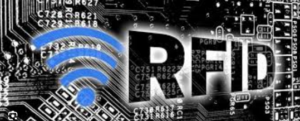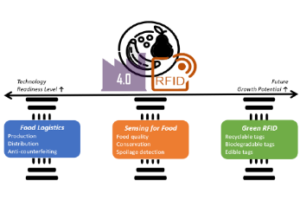In today’s digital age, the Internet of Things (IoT) technology is leading humanity into a new era of intelligence with its powerful connectivity and wide range of applications. As an essential component of the IoT, RFID (Radio Frequency Identification) tags have emerged, opening up infinite possibilities for us.
RFID tags are devices that communicate wirelessly with readers through radio frequency signals, enabling automatic identification and tracking of objects without the need for direct contact. Its applications span across various fields, including logistics management, supply chain traceability, asset management, and the retail industry, providing significant convenience and benefits to businesses and individuals.

RFID Tags 1
First and foremost, RFID tags play a crucial role in logistics management. By attaching tags to goods, logistics companies can track and manage every aspect of the logistics transportation process in real time, enhancing the safety and accuracy of goods transportation. Compared to traditional barcodes, RFID tags can simultaneously read multiple tags, greatly improving the speed and accuracy of obtaining logistics information, saving businesses a substantial amount of time and labor costs.
Secondly, RFID tags have unique advantages in supply chain traceability. In fields such as food and pharmaceuticals, tracing the origin and flow of products is of paramount importance. RFID tags can be linked to products, recording and transmitting relevant information such as production dates, batch numbers, and supplier details. When product quality issues or recall requirements arise, RFID tags enable quick and accurate identification of affected products, avoiding the risks associated with information asymmetry and delayed handling, thus safeguarding consumer rights and maintaining the reputation of businesses.

RFID Tags 3
Moreover, RFID tags play a significant role in asset management. Whether it’s a company’s equipment and office supplies or a hospital’s medical devices, they can be managed and tracked using RFID tags. By monitoring the location and status of tags in real-time, businesses can efficiently manage and utilize their assets, reducing resource wastage and loss. Additionally, RFID tags can provide relevant information for asset maintenance and repairs, aiding businesses in implementing precise management practices and extending the lifespan of their assets.
Lastly, RFID tags have a crucial role to play in the retail industry. By attaching RFID tags to merchandise, retailers can achieve automatic inventory counting and management, reducing the workload and error rate of manual inventory checks. Furthermore, RFID tags can be integrated with payment systems, enabling automatic deductions and settlements, enhancing the convenience and efficiency of the shopping experience.
In conclusion, RFID tags, as a vital IoT technology, are profoundly transforming the way we live and work. They bring about significant changes and innovations in logistics management, supply chain traceability, asset management, and the retail industry. With ongoing technological advancements and expanding applications, we believe RFID tags will continue to play an increasingly important and extensive role in the future, shaping a smarter and more convenient world for us.












